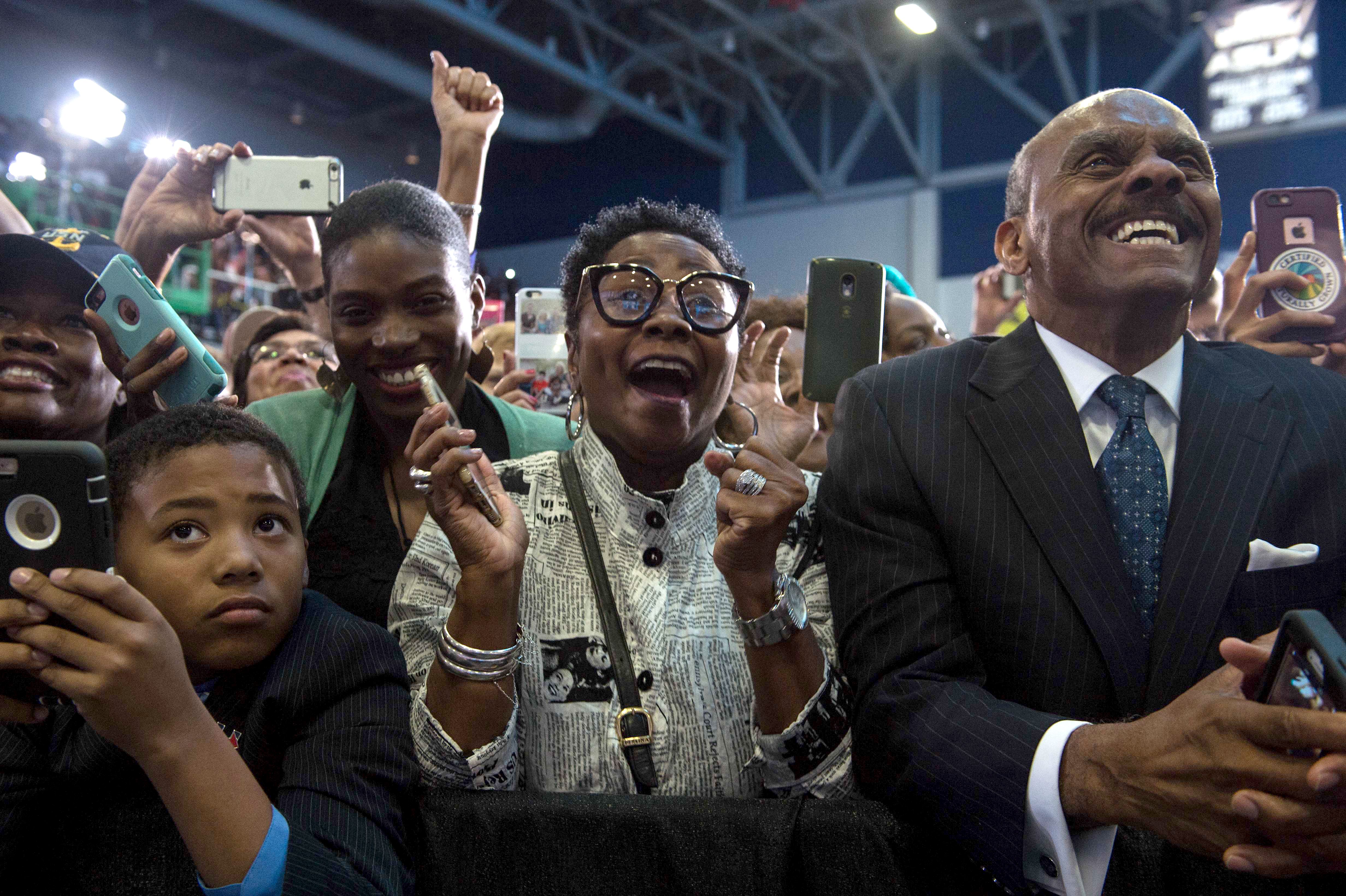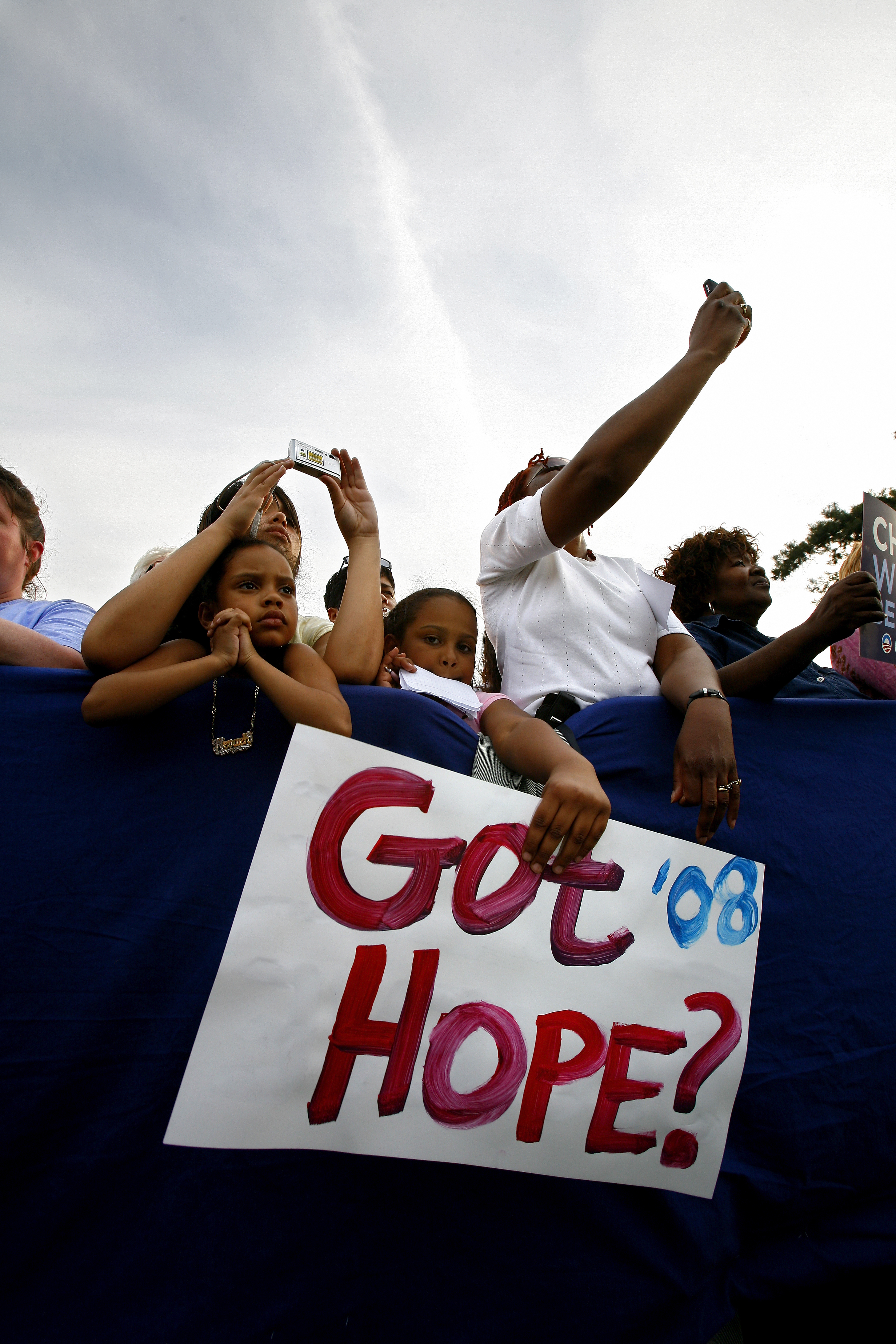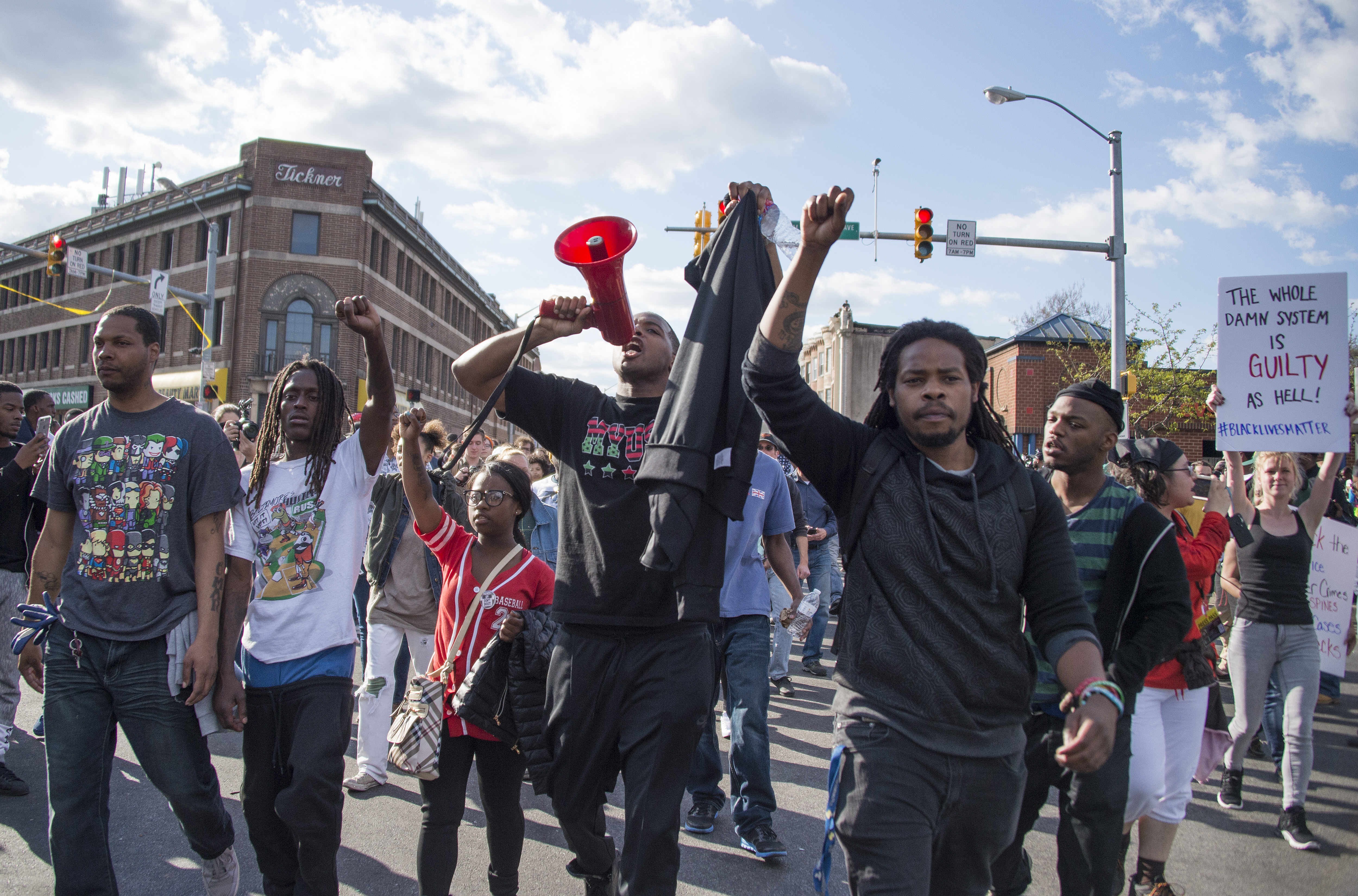How Obama’s ‘Hope’ Led To Pessimism
How Obama Changed The Definition Of ‘Hope’ For Me
When America’s only Black president first announced his candidacy, I was still a year away from being old enough to vote. Like so many 17-year-olds, I had yet to become too invested in politics. Like many Black folks of all ages, however, something seismic shifted within me the moment I realized Barack Obama could actually win. His slogans of “hope” and “change” became more than just banal campaign rhetoric. He was the human manifestation of a social awakening and would completely transform the way I related to a country I had known to dehumanize me and my community.

Source: NICHOLAS KAMM / Getty
On the morning of November 5, 2008, I woke up to my hopes fulfilled. My president-elect was Black, and I was certain he would embrace his Blackness as I had seen our Blackness embrace him. Within months, however, he was already distancing himself from his former pastor Jeremiah Wright for “racially controversial” remarks, blaming Black communities for their own problems and continuously reiterating his commitment to colorblind governing. “I’m not the president of Black America,” he reminded anyone who would listen, “I’m the president of the United States of America.” I would not listen. For how can you be the president of the United States without being the president of Black America—unless Black people are not part of the country? The hope Obama gave us was that America is finally Black America, too.
Yet by 2012, I did not know what hope meant anymore. I had lived with it for those four years, and when Obama was reelected I felt as if I could no longer trust it. I skeptically cast my ballot for him anyway. Perhaps in his second term he would pay attention to our struggles as he wouldn’t be looking toward another campaign, I thought, without really believing it myself.
Deep down, I knew it wasn’t that Obama didn’t pay attention to us. He had to in order to win. He saw us, used us for his gains and then reminded us he couldn’t be our president and the president of the country at the same time. Because the country sees us too—it just sees in us the enemy. It saw the powerless hope Obama gave us for these past eight years. It saw that this hope came alongside those of us always left behind, having our economic conditions improve the least. It saw how that hope came alongside Black people murdered over and over again, day after day, and the birth of a Movement for Black Lives in response. Obama’s country saw all of this, and turned around to elect a bigot all the same. And Obama turned around and told the country to unify with that bigot. As if it needed telling.

Source: Orjan F. Ellingvag / Getty
I know now that even an awakened America will still choose to stand upon the backs of those it can get away with standing on. It was Black folks like me who needed to wake up to the fact that this was always in front of us. But it’s always been so easy to pretend not to see it.
The old heads from the hood were the ones who always reminded me none of these candidates were looking out for me. We are conditioned to ignore them, though. What do poor Black folks know, after all? I can’t count the number of times I’ve heard some iteration of the belief that if those fools would just get educated and vote, they might fix their problems.Eight years of Obama pushed me toward what many Black folks from poor communities like the one where I grew up have always known: Hope will get you nowhere without healthy pessimism.
I believed this for a long time. Hope in liberalism will make you blame those it cannot save for its failures. It will get you nowhere, but it will get you behind a Black—or woman—or queer—face, and insist that this face transplant helps, because it is all it can do. But nowhere is still nowhere. Perhaps it is time to finally begin to listen to what Obama was always trying to say: the United States and Black America are different. Therefore, our hope cannot be in this country.

Source: JIM WATSON / Getty
This is not a call to give up hope entirely. It is a call for a new hope. A hope that we don’t need a country that has proven it will not support us. A hope that we don’t need law enforcement who won’t protect us. A hope in reimagining policing, communities, and engaging with the state entirely. A hope that we stop attacking Black folks who have divested from presidential politics and start supporting their efforts to find better solutions. This is a hope tied to pessimism and a realistic assessment of the anti-Black ways of the world. One which recognizes that body cameras do not mean convictions and convictions do not mean justice. A hope that demands more than reform. One which understands a Black president of an anti-Black country does not lead to the elimination of its anti-Blackness.
Donald Trump is not a surprising anomaly in this country’s history, but a continuation of the ways it harms the least of us. We can disrupt that history, but only once we recognize how Obama, too, was only a continuation. At some point, we have to stop continuing oppression in different ways and calling that a fix.
Hari Ziyad is a New York-based storyteller and the Editor-in-Chief of RaceBaitR. They are also an assistant editor for Vinyl Poetry & Prose and a contributing writer for The Black Youth Project.
SEE ALSO:
A Gay Black Man Reflects On Marriage Equality During The Obama Presidency















